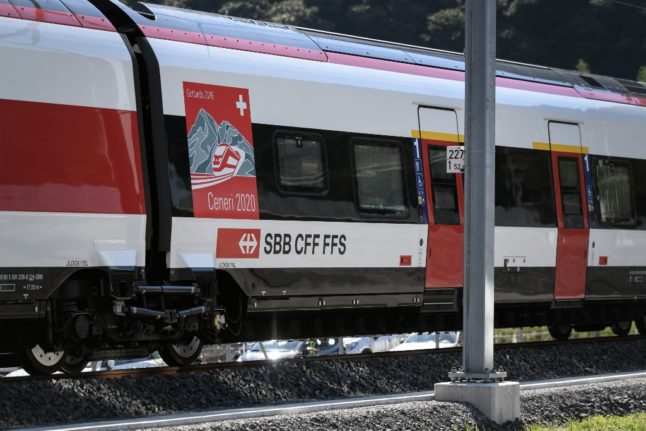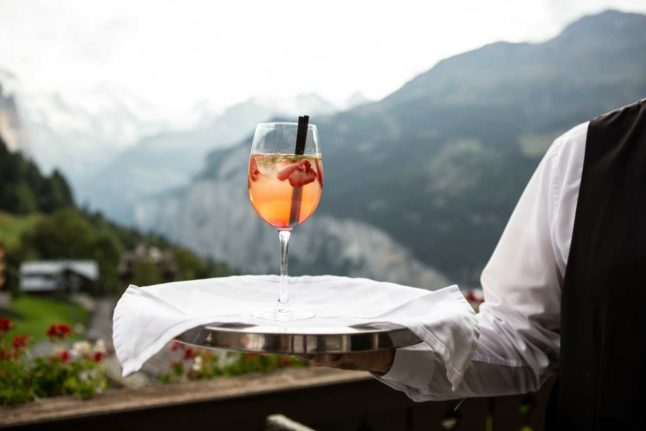1. Sunday, bloody Sunday
Swiss cities can be like ghost towns on Sundays. While in other countries Sunday might be the perfect day to get your groceries, run some errands or engage in some retail therapy, there’s very little of that at all available to you on Sunday in Switzerland.
That said, there is still plenty to do on a lazy Swiss Sunday – just do what the locals do.
Escape to the mountains and lakes to hike (which is the Swiss national sport), swim and soak up the glorious scenery. Those who don’t tend to moan that Switzerland is boring. It isn’t – you just have to know where to go and what to do.
Verdict: How much should you tip in Switzerland and should you tip at all?
2. Leave things late
New arrivals to Switzerland might be tempted to pop into the shops on the way home from work – only to find that the shops are already closed.
Supermarkets close across much of Switzerland at 6:30pm, which makes shopping difficult – particularly for full-time workers.
The same goes for Sunday, with all but the smallest convenience stores closed from Saturday afternoon to Monday morning.
3. Eating lunch at a time other than lunchtime
While this could be filed under point two above, the Swiss especially like routine and don’t like surprises.
Don’t expect to easily find a restaurant that will serve you after 2pm, particularly in smaller cities and rural areas. You’ll just have to grab a sandwich (with the obligatory gherkin) from a supermarket instead.
Also – and this applies particularly to Americans and Australians – lunch is an important cultural event to the Swiss, even in the workplace.
While in other countries working through lunch or eating lunch at your desk may be an example of hard work and dedication, in Switzerland it may come off as rude. If you’re invited to have lunch with a colleague, take them up on the invitation.
4. Get surprised at lunchtime drinking
OK, so we’re talking about lunch again, but one of the most surprising things about Swiss work culture is that the lunch break beer or wine is still a thing – particularly in Romandie.
Work lunches will often include a small beer or wine, particularly on a Friday.
While it may seem irresponsible or even dangerous, keep in mind that the Swiss do almost everything in moderation – particularly drinking, so while one beer will go down well among your workmates, a double vodka coke will send the wrong message.
5. Thinking the Swiss speak all of Switzerland’s languages
Officially, French, German, Italian and Romansh are Switzerland’s languages – but that doesn’t mean a Swiss person will be able to speak all of these. We’ll let them off the hook for not being able to do small talk in Romansh.
While many Swiss people are multilingual, don’t expect to be universally understood if you speak French in the German part or German in the French part.
EXPLAINED: Everything you need to know about Swiss language tests for residency
Younger people are particularly likely to speak English rather than another Swiss language as their second language – and Swiss from different linguistic regions are likely to talk to each other in English.
6. Pay full price on the train
Swiss trains are expensive, but you don’t need to pay full fares. Get yourself a demi-tarif/halbtax card, and get half-price fares for a year (for a one-off fee, of course – but it’s well worth it).
There are a range of discounts available. Swiss residents only rarely pay full price.
Check out the following article for more.
REVEALED: How to find cheap train tickets in Switzerland

Photo by Fabrice COFFRINI / AFP
7. Only making ‘expat’ friends
Making friends after moving to a new country can be difficult – and according to our readers, the situation in Switzerland is particularly tough.
As a result, many foreigners fall into the trap of only making foreign friends. While this is understandable, it hampers your ability to truly immerse yourself in and experience Swiss culture.
Although the Swiss aren’t the most outgoing bunch, when you make a Swiss friend you’ll have them for life – and you’ll be able to see a whole different side to the country.
8. Failing to learn the laundry laws
Many Swiss apartments don’t have washing machines. Instead, tenants share a communal one in the basement, and rules on when to use it can be very strict.
Don’t ever make the error of rocking up to use it on someone else’s ‘day’. Warning notes, verbal reprimands and even – in one case – physical violence could ensue.
READ MORE: The 12 strange laws in Switzerland you need to know
9. Jaywalking
In many parts of the world, the ‘red man’ – i.e. the ‘do not walk’ sign – is a suggestion rather than a commandment.
In much of Switzerland, this is not the case. It often bemuses expats is seeing the rule-abiding Swiss waiting obediently for the green man rather than crossing a road without ‘permission’, even if there’s no traffic coming.
Deciding to do so – even if there’s really no traffic and no risk – will not only see you risk being shunned by your fellow pedestrians, but there’s also a good chance you’ll receive a fine.
10. Not carrying cash
Switzerland is a world leader in innovation and technology, having established themselves as international role models for everything from luxury watchmaking to recycling.
Switzerland also reluctantly clings to cash payments like few other wealthy nations.
While the Covid pandemic has begun to change things – card payments overtook cash payments in 2021 for the first time ever – there are still a number of locations and venues where paying with card is difficult or impossible.
READ MORE: Could Covid end the Swiss love affair with cash?
Just to be safe, be sure to withdraw some of Switzerland’s spectacular colourful cash and carry it around with you for emergency use.
11. Queueing (lining up)
It is downright mysterious that – in a country as ordered as Switzerland – queueing (or ‘lining up’ for those Americans among us) isn’t really a thing.
While arrivals from the English-speaking world are likely to queue for everything from public transport to takeaway coffees automatically, this is a language which many Swiss simply don’t speak.
Long-time Swiss residents will have lost count of the amount of times they’ve been standing at the front of what they think is a queue, only to be overtaken by one or more Swiss when the door opens.
Just keep your wits about you and make sure you remind the person that you were there first.
12. Tipping
Tipping is not expected in Switzerland, and while it is increasing in prevalence, it is largely not expected of you.
A firmly entrenched custom in many countries, tipping is not, however, necessary in Switzerland.
Staff salaries are good, compared with other countries, and tips are included in the price of your meal. You can certainly leave something if you want, but don’t feel obliged. Restaurant prices are high enough, after all.
13. Not greeting people personally
14. Heading to your favourite cafe, bar or restaurant in August
Newcomers to the country might not realise that many restaurants and small shops close for (at least) a two-week holiday in the summer, a sensible move seeing as everyone else seems to be on holiday too.
You may as well down tools and join them.
A version of this article first appeared on The Local Switzerland in August 2016.



 Please whitelist us to continue reading.
Please whitelist us to continue reading.
Re: #5. Switzerland would be wise to make English the fourth official language. Swiss children universally should be taught the language of their canton and English, as soon as possible. Official languages other than the language of one’s canton should be optional, taught for their cultural benefit. German used to be the lingua franca (!) of Switzerland, but it no longer is – English is.